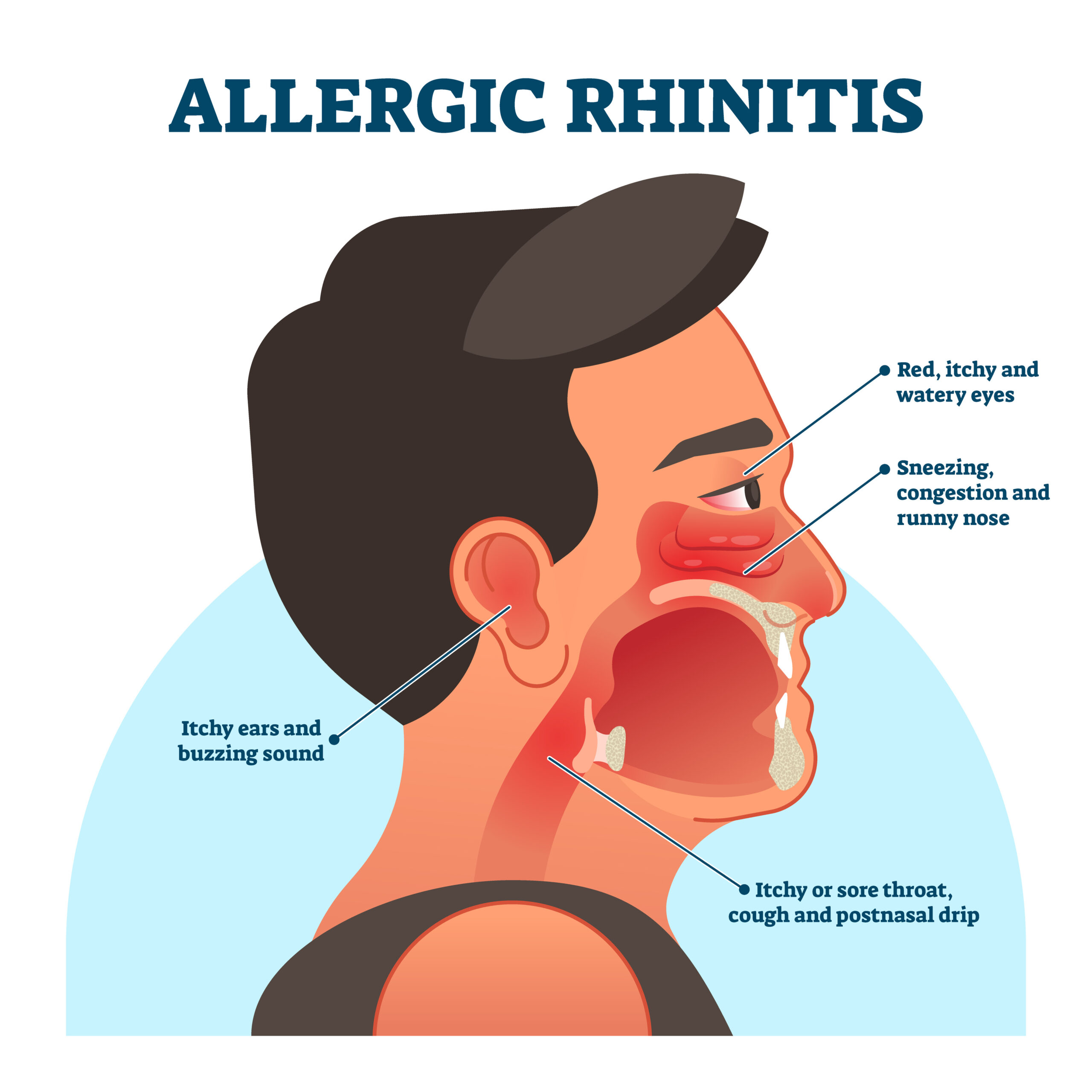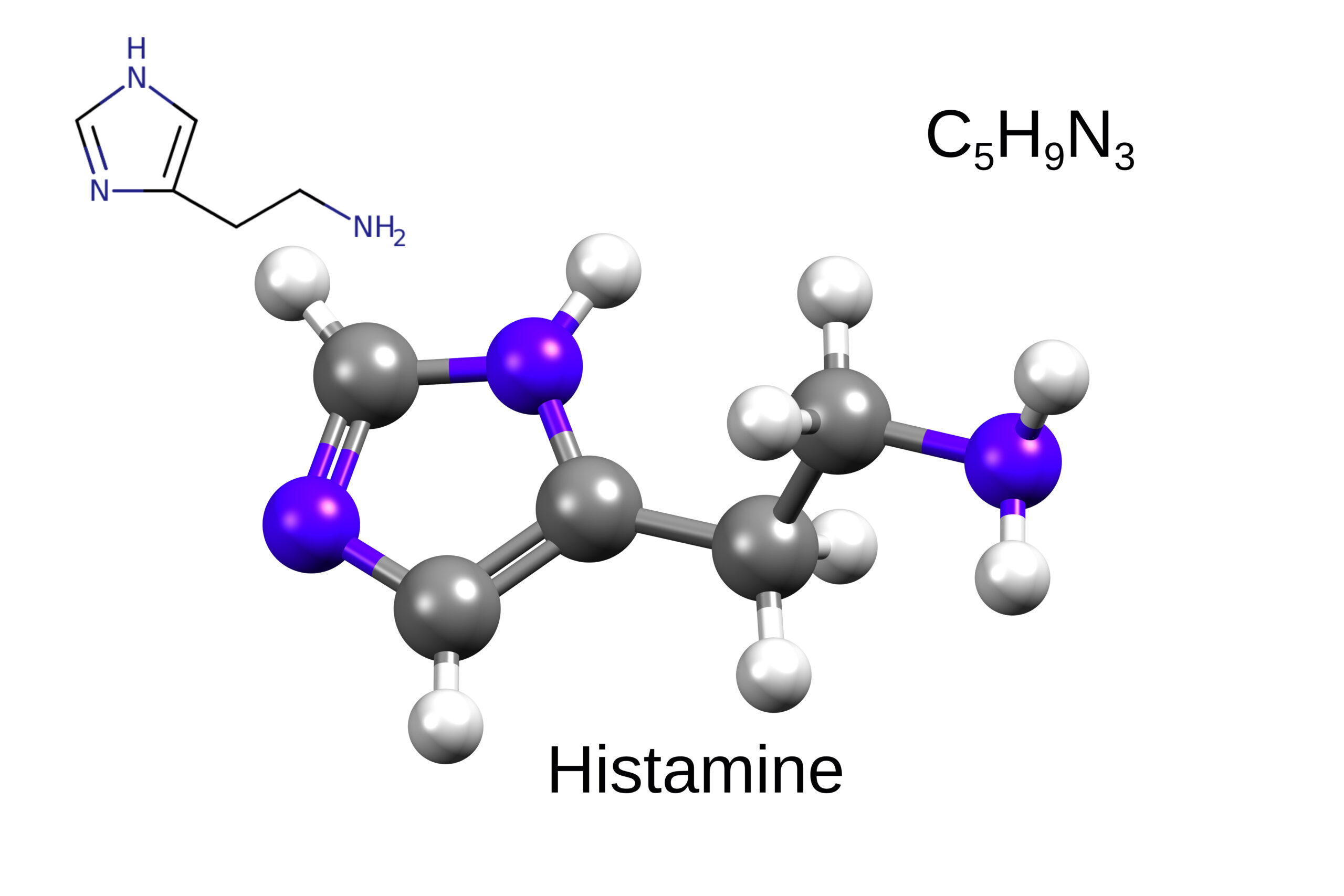Allergic Rhinitis
Allergic rhinitis is a common allergic reaction affecting the nasal passages and surrounding tissues.
It occurs when the immune system overreacts to certain airborne substances known as allergens. These allergens can vary widely and may include pollen from trees, grasses, and weeds, as well as mold spores, pet dander, dust mites, and certain environmental pollutants.


Histamines
Upon exposure to these allergens, the immune system releases chemicals, particularly histamines, as part of its defense mechanism.
Histamines cause inflammation of the nasal passages, leading to the characteristic symptoms of allergic rhinitis. Individuals with this condition often experience frequent bouts of sneezing, a congested or stuffy nose, a runny nose, and itching sensations in the nose, eyes, throat, and ears. Watery and red eyes are also common manifestations
Impacts Quality of Life
Allergic rhinitis can have a significant impact on a person's quality of life.
Beyond the physical discomfort, it can lead to fatigue, irritability, and difficulty concentrating, affecting work or school performance. Additionally, the persistent nature of the symptoms can contribute to sleep disturbances and overall reduced well-being.


Managing Allergic Rhinitis
Management of allergic rhinitis typically involves a combination of preventive measures and symptomatic relief.
Avoiding exposure to known allergens, using air purifiers, and keeping living spaces clean are common preventive strategies. Medications such as antihistamines, nasal corticosteroids, decongestants, and allergy shots may be prescribed to alleviate symptoms.
Talk With Your Provider
While allergic rhinitis is generally not a life-threatening condition, its chronic nature underscores the importance of...
ongoing management and a comprehensive approach to minimize its impact on daily life. Seeking advice from a healthcare professional is crucial for an accurate diagnosis and an effective treatment plan tailored to individual needs.


